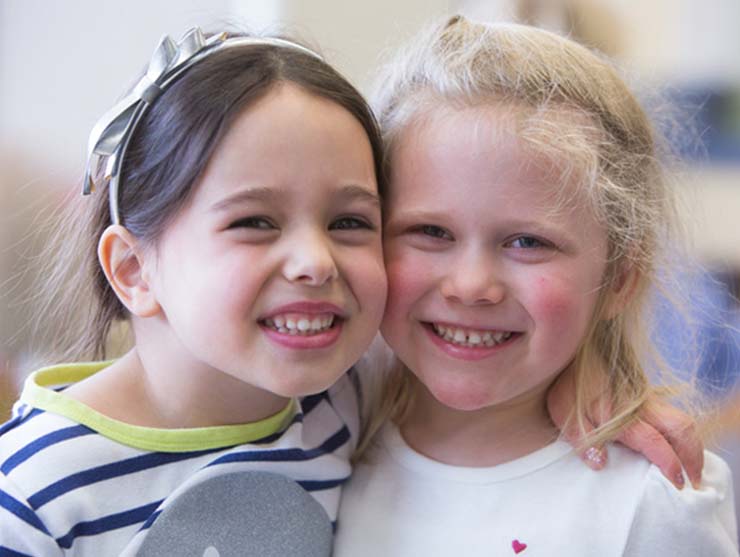Parents sometimes wonder, “What is my toddler thinking?” as he pushes an object around the room or rolls a ball down an incline again and again. Brain research gives us insight into toddlers’ thinking and behavior.
How Do Toddlers’ Brains Work?
We know that connections form between brain cells (neurons) with every interaction we have with a toddler. Dendrites connect the neurons and help neurons communicate with each other. To make the brain as efficient as possible, “pruning” of the connections later occurs. Connections that are not used are pruned out, while those that have been used repeatedly stay. These connections are like a maze of inter-connected roads and pathways. The paths that are used more frequently become well-established. Those that aren’t used are like a faded, overgrown path. The repetitive activities that toddlers seem to love such as reading a short book multiple times or singing a song over and over are critical for healthy development of the brain.
Piaget’s Stages of Cognitive Development
Jean Piaget, child development theorist, labelled the first two years of life as the Sensorimotor stage. During this time, children learn primarily through their senses and through movement. During the second year of life, there are two sub-stages in toddler cognitive (thinking) development. Tertiary Circular Reactions is the sub-stage which occurs typically from 12 – 18 months. During this time, toddlers learn through trial and error. They are continuously taking ideas they have in their heads and trying them out as they explore their world. Talking about ideas with them is important. Doing so helps toddlers process the information they gather and see that you respect their thoughts.
From 18 – 24 months, toddlers are in the Beginnings of Thought stage. This is when toddlers typically learn symbolic thought and begin pretend play. They begin to understand that one thing can represent another. For example, a block can be a cell phone or a paper plate could be a pie.
How to Encourage Your Toddler’s Development
Foster experimentation. Remember that younger toddlers learn through trial and error. What may look like unfocused play is really testing how the world works. For example, dropping an object in water and observing whether it floats or sinks is testing a hypothesis. Repeatedly dropping a toy off of the high chair tray to see if it makes a loud sound helps children understand cause and effect. Provide open-ended materials that encourage experimentation, like blocks, stacking cups, dolls, or sand.
Be patient. Recognize that repetition helps toddlers learn and develop. Try to be tolerant as your toddler tries the same action over and over and over.
Encourage conversation. Talk with your children about their ideas to show interest and respect. “I see you have an idea and you are trying it out to see if it works.” They will understand more than they can say initially, but eventually, their speaking will catch up with their understanding.
Join in your child’s pretend play. If she uses a block to talk to you on your cell phone, use a block yourself in the same way. Offer materials which encourage pretend play—a child-sized grocery cart, a doll bed and blanket, or an old brief case and hat. Or you can model first using a block as a cell phone, a pine cone for food, etc.
Coming to understand how toddlers think is a fascinating process. Watch, in particular, for trial and error learning and symbolic play from your toddler, and engage with him to support the learning process.
More on Toddler Development:
- Knowing what makes a toddler tick can help you keep your cool, but it's only one tool in your parenting toolbox. Discover more tips from seasoned parents on surviving toddlerhood.
- Allowing your child opportunities to do things independently might take longer than if you helped, but the end results are worth the extra effort. Below are a few tips to encourage toddler development and help your child through this exciting time.
- From “abstract” artwork to multiple cups of coffee – you may have noticed some signs that your colleague may have a two year old at home. Here are some humorous common traits of working parents with toddlers.




